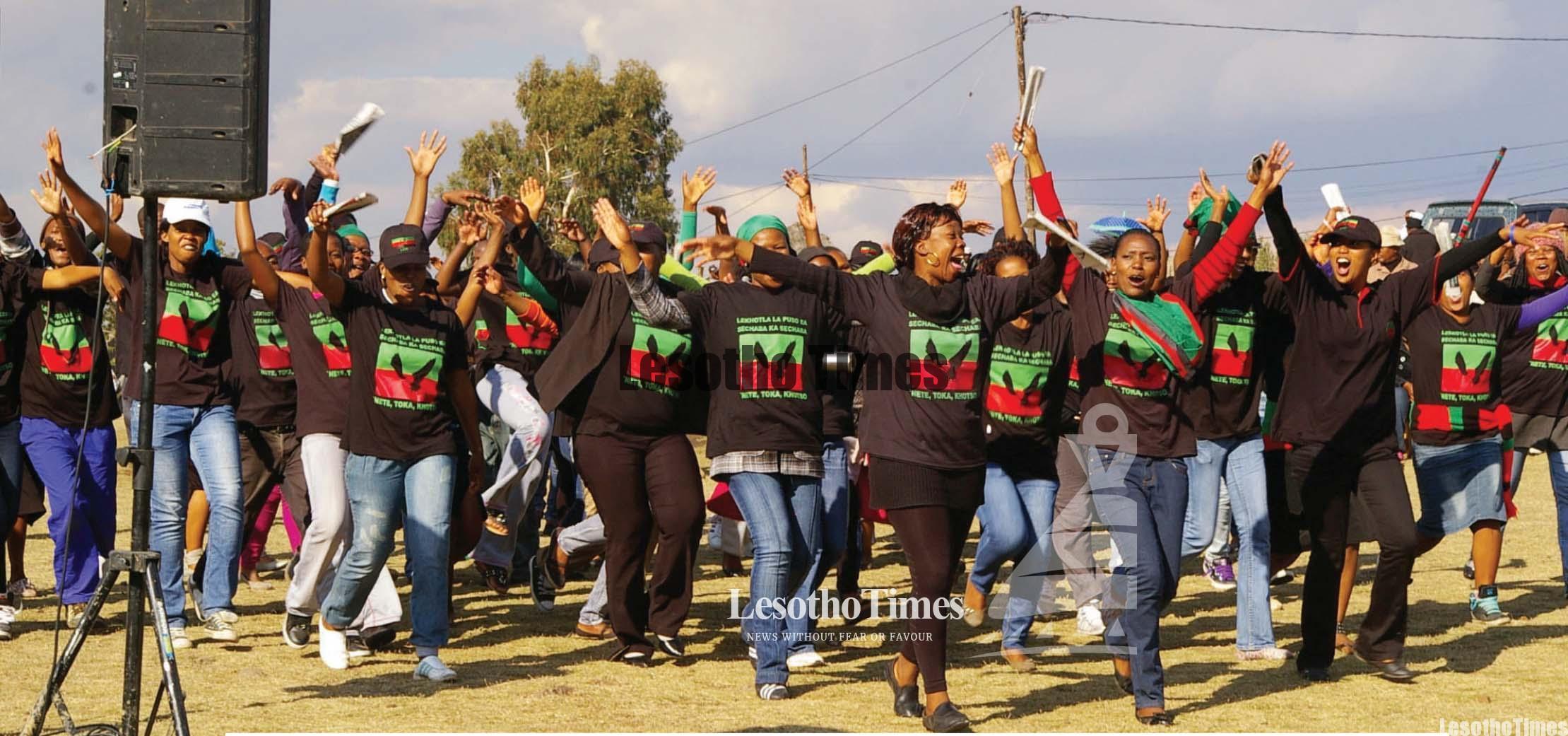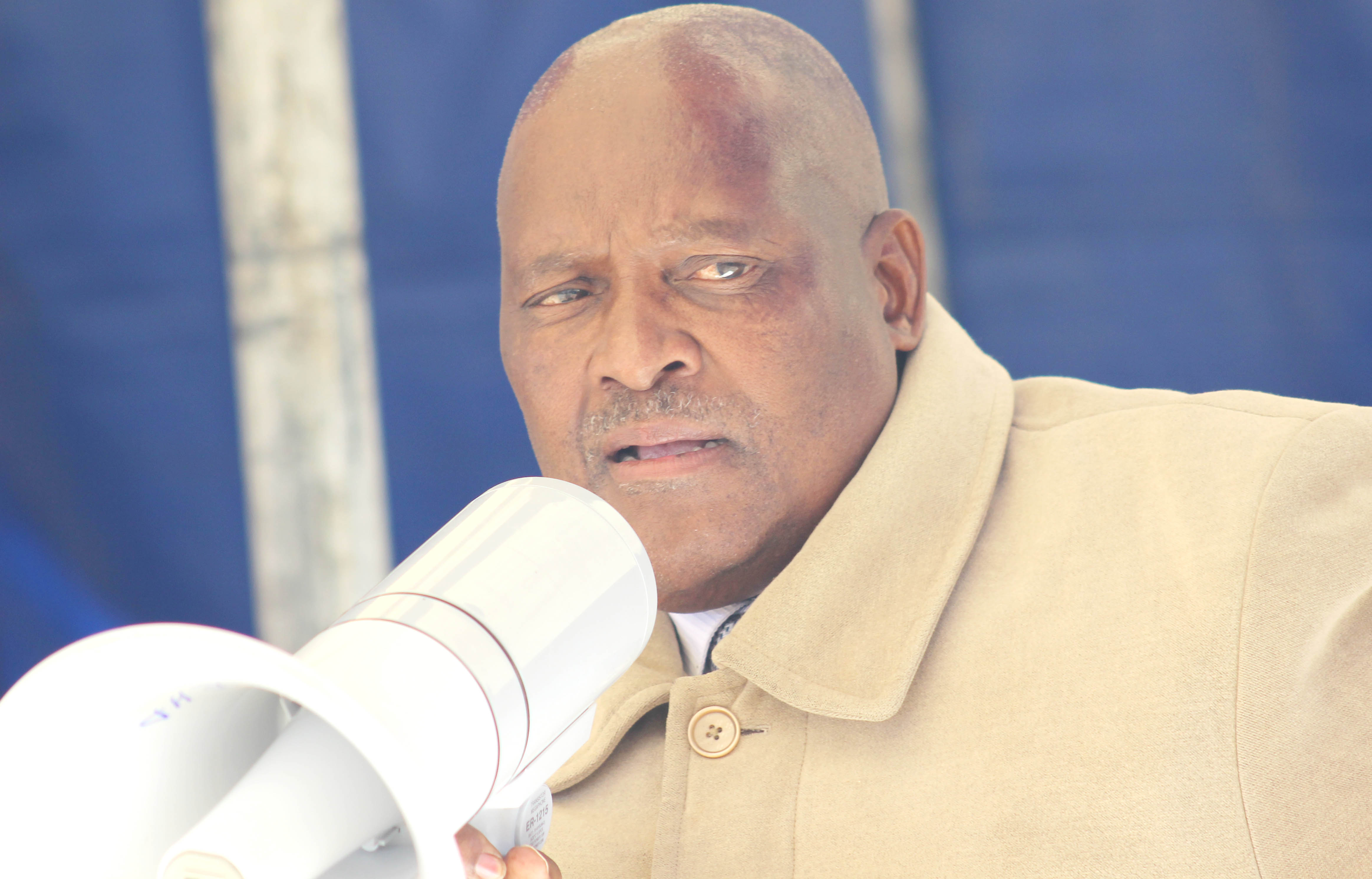
…says he was forced to lie to magistrate
Moorosi Tsiane
CAPTAIN (Capt) Mahlehle Moeletsi, one of the soldiers charged with the May 2017 murder of three civilians, broke into tears in court on Monday as he summersaulted on a confession he made before Resident Magistrate Peete Molapo on 25 September 2017.
Capt Moeletsi took the stand as the defence witness in a trial within a trial intended to test the admissibility of evidence in which he and his alleged accomplices pointed the spot at which they dumped the bodies of Lekhoele Noko, Molise Pakela and Khothatso Makibinyane. It is the state’s case that they strangled the three and threw their bodies into the Mohale Dam.
He is charged alongside the former Military Intelligence boss Brigadier Rapele Mphaki, Major Pitso Ramoepane, Sergeant Lekhooa Moepi, Lance Corporal Mahlomola Makhoali, Privates Nthatakane Motanyane, Motšoane Machai, Tieho Tikiso, Liphapang Sefako and Nemase Faso.
Capt Moeletsi told Justice Moroke Mokhesi that police officers tortured him into admitting that he killed the trio and forced him to sign a statement to that effect which they had already prepared.
He informed the court that he was arrested on 21 September 2017 and detained at the Police Headquarters where he was subjected to brutal assault and torture by Seargent Thamae Thamae, Inspector Beleme Lebajoa, Lance Seargent Mohanoe, Lance Seargent Nkiane, Police Constable’s Tankiso Lethoko, Seutloali, Nthejane and Tshabalala.
Led in his evidence in chief by Advocate Letuka Molati, Capt Moeletsi told the court that after he was arrested, the police gave him a statement saying he should sign. When he refused, they started to torture him.
“They got furious when I refused to sign the statement and they took a black plastic bag and covered my head with it until I got unconscious. Both hands were handcuffed, and my legs were also shackled.
“The torturing happened three times that day (24 September 2017) in the morning, around lunch, and late at night at around 22.00 hours,” said Capt Moeletsi.
He said after the “late-night torture”, he signed the statement because he could no longer bear the pain. The next day he was taken to the Maseru Magistrates Court to confess, and he was told to repeat exactly what was in that statement.
“I was taken to the office of one Ms Thabisi (commissioner of oaths) by Lebajoa, Seutloali and Nkiane. After introductions, she asked how she could help me and I told her that I did not need her help. Immediately Lebajoa gave her the statement and told her that I was going to sign for it. Ms Thabisi said I should sign, and I told her that I would not sign because I had not given any statement. She looked surprised and asked the officer what was happening… They said I agreed to go there and sign.
“Ms Thabisi called another person by the name of (Gcinumuzi) Tshabalala (prosecutor). After he was briefed, he asked that we leave that office. As we left the office, we found a group of heavily armed members of the police Special Operating Unit (SOU) outside. The three officers who took me in told the other group which was outside how I had hurt them when we were inside the office.
“SOU members said they would deal with that behaviour later at the Police Headquarters and Seutloali and Lebajoa said I should suffer for what I did,” said Capt Moeletsi.
He said he was then taken into the office of Magistrate Molapo after Inspector Seutloali made death threats to him.
“After they uncuffed me, Seutloali said it would be for my benefit to choose between life and death or to go inside Magistrate Molapo’s office and say what they want me to say. We got in and I greeted Magistrate Molapo. I told him I was there to give my statement. He asked if I was aware I was going to confess and I said I was not aware I didn’t know about it. He explained it to me. When he was done, I narrated what I was told to say by the Police and I signed the statement. I was still trembling with fear from what the police had said to me when we were outside so I couldn’t even look back to check whether they were still in the room or not.”
Capt Moeletsi broke into tears while narrating his story. He told the court he feared for his life. So he had no choice but to do what the police had ordered.
“My life was in danger because I was already weak due to hunger and the torture I was subjected to. I had to do what they wanted me to do and go to prison rather than die…. At that time many people were dying in police cells…” he said while wiping off tears cascading down his cheeks.
Justice Mokhesi asked if he needed some time to cool off, but Capt Moeletsi said he was okay to continue.
He said after the confession, he was taken back to the Police Headquarters and after lunch was taken back to the Magistrates Court where he was read the murder charges and remanded into custody.
Capt Moeletsi said when the Lesotho Correctional Service officers were still filing in his forms upon arrival at the Maseru Central Correctional Institution, the three police officers asked to talk to him, and he agreed.
“They asked me to be an accomplice witness in this matter, promising to have me released the same day if I agreed. They also said the Lesotho Defence Force (LDF) command was aware of this issue and once I accepted their offer, a promotion in the military was also awaiting me. But I told them that I could not be an accomplice witness because I know nothing about this case.”
Capt Moeletsi denied ever taking any investigators to Mohale Dam where the three bodies were retrieved.
The trial within trial was launched after Crown witness, Det-Insp Lethoko had in May last year told the court that Brig Mphaki confessed that his co-accused had killed the trio and dumped their bodies into Mohale dam.
Det-Insp Lethoko’s evidence was objected to by the defence lawyers who said such admission, confession and pointing out of where the bodies were thrown, were not done voluntarily and freely therefore inadmissible in court.
They asked the court to launch a trial within trial to establish whether such evidence was solicitated legally.
Capt Moeletsi was the first defence witness after the Crown completed leading its evidence that the accused had voluntarily led the police investigators to where the bodies had been dumped.
The trial continues today with other defence witnesses expected to testify






